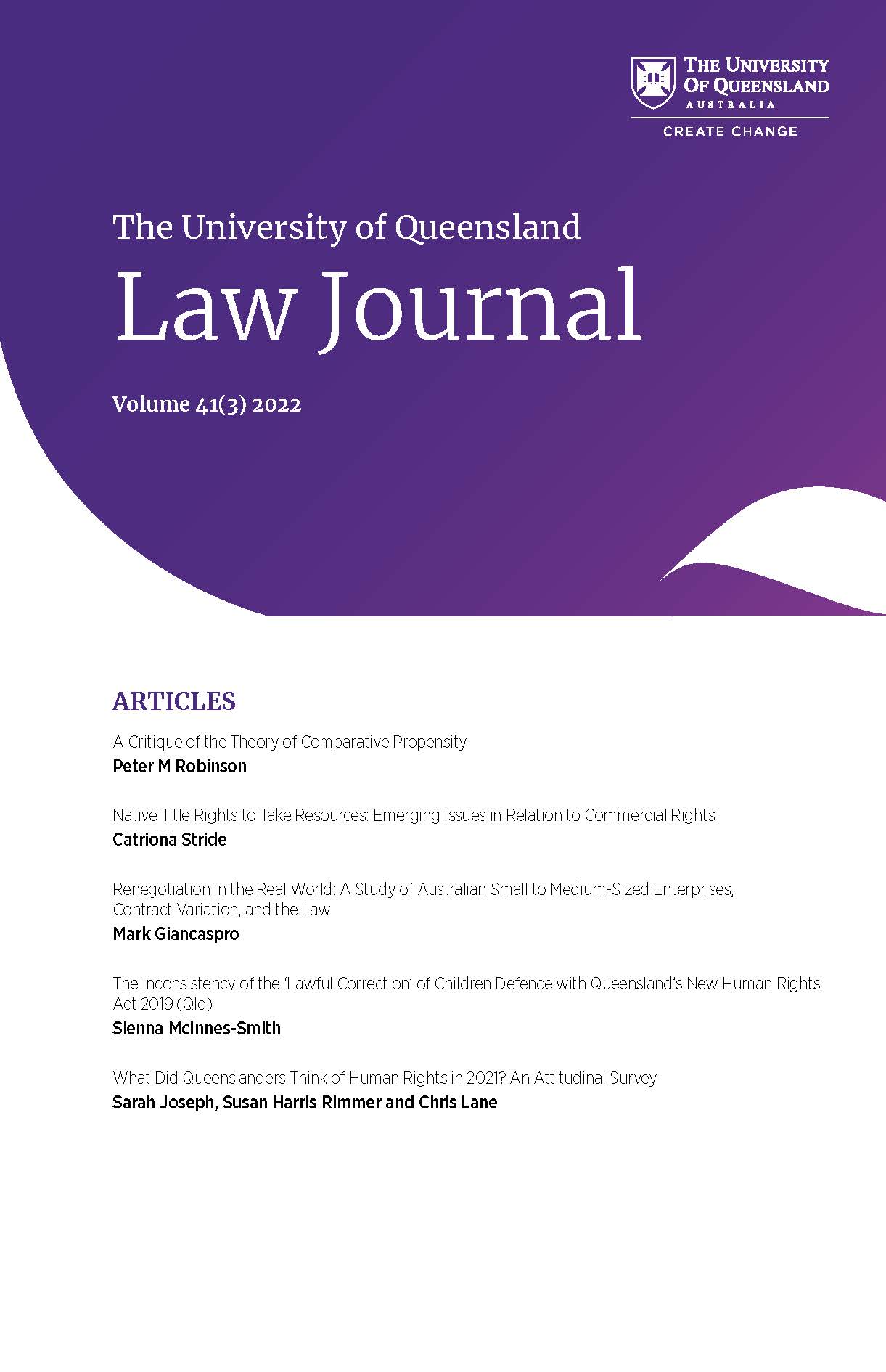Published 2022-11-20
Keywords
- propensity,
- tendency,
- coincidence,
- evidence,
- prior conduct
Abstract
The law of propensity evidence is in a state of flux in Australia as various State jurisdictions decide on their responses to recommendations of the Royal Commission Into Institutional Responses to Child Sexual Abuse. Controversy persists about the probative value of such evidence, not limited to child sexual assault cases. An influential theory in this area is the theory of comparative propensity, advocated by Professor Hamer, and approved in a qualified way by the Royal Commission. The theory employs a mathematical model based on Bayes’ equation to estimate the probative value of such evidence. This article critiques the theory and concludes that it does not reflect the real world factors that impact the probative value of such evidence.
